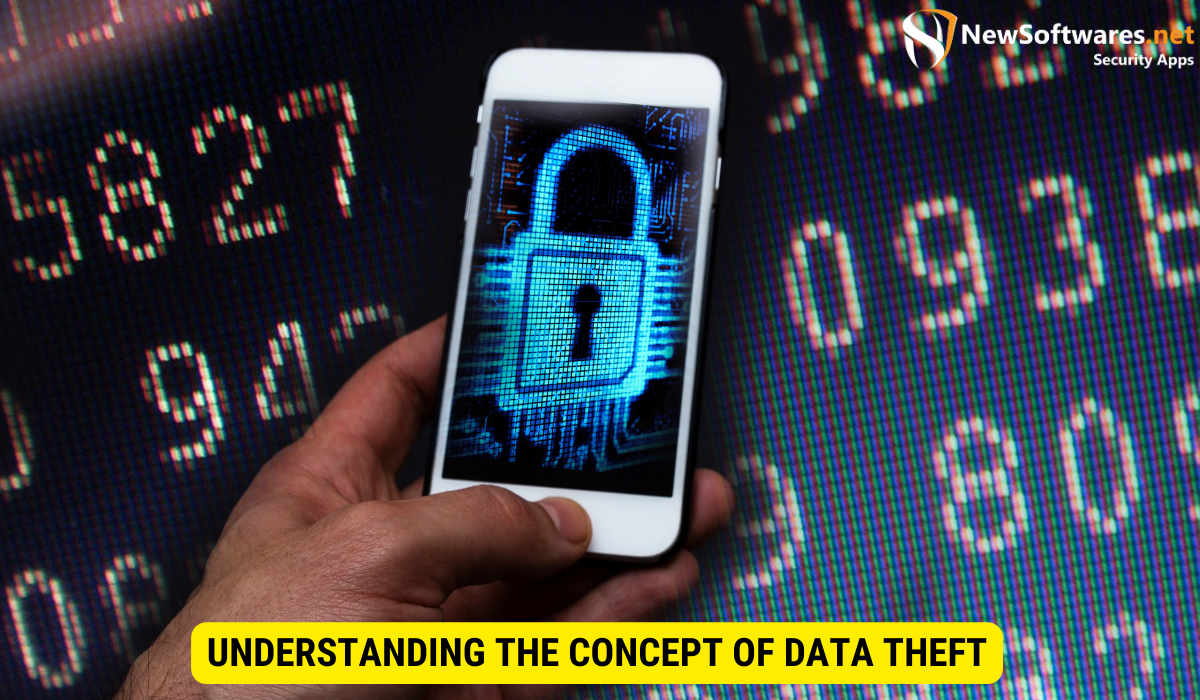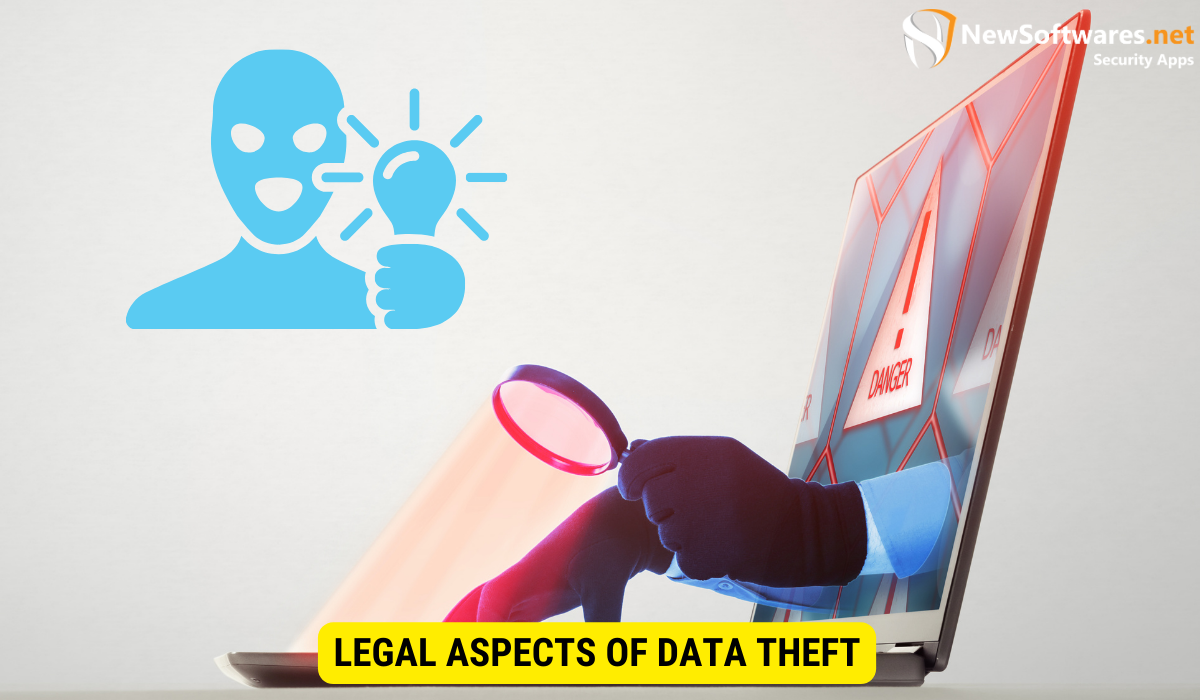TechPhD’s review indicates potential data security risks. Protect your data with strong encryption, regular security audits, and vigilant monitoring to minimize the risk of theft.
“TechPhD” is a company that has been under scrutiny for alleged data theft, raising privacy concerns. In this article, we will delve into the concept of data theft and its implications on privacy. I will also explore the role of “TechPhD” in these allegations and discuss ways to protect your data from theft. Finally, I will explore data theft’s legal aspects and the options available to victims.
Understanding the Concept of Data Theft

Data theft refers to the unauthorized access, acquisition, or use of someone’s personal or sensitive information. It involves the intentional or accidental theft of data in a way that violates privacy and may lead to harm or misuse of the stolen information. Data theft can occur through various means, including hacking, phishing, malware, insider attacks, or physical theft of devices.
Data theft is a growing concern in today’s digital age. With the increasing reliance on technology and the widespread use of the internet, individuals and organizations are at a higher risk of falling victim to data theft. The cost of data theft can be severe, ranging from financial loss and identity theft to reputational damage and legal implications.
What is Data Theft?
Data theft is the act of illegally obtaining personal or sensitive information from individuals, organizations, or systems. This can include personal details such as names, addresses, social security numbers, financial information, login credentials, or intellectual property.
Data theft can have devastating effects on individuals and businesses alike. For individuals, data theft can result in identity theft, where their personal information is used to commit fraudulent activities or gain unauthorized access to their financial accounts. This can lead to financial ruin, damaged credit scores, and a long and arduous process of recovering one’s identity.
For organizations, data theft can have far-reaching consequences. The loss of sensitive customer data can erode trust and confidence in the company, leading to a loss of business and a damaged reputation. Intellectual property theft can significantly affect a company’s competitiveness and innovation.
How Does Data Theft Occur?
Data theft can occur through several methods. Cybercriminals may employ sophisticated hacking techniques to exploit vulnerabilities in computer systems or networks, gaining unauthorized access to valuable data. These hackers often target organizations with weak security measures or outdated software, making them vulnerable to attacks.
Phishing is another commonly employed tactic cybercriminals use to acquire data illicitly. In a phishing assault, unsuspecting individuals are duped into furnishing confidential information, including but not limited to passwords and credit card particulars, under the pretense of an authentic entity. These illicit endeavors frequently manifest in deceitful emails or webpages, cunningly designed to mimic reputable and trustworthy sources.
In some cases, data theft can also happen internally, where employees or insiders misuse their access to steal or leak sensitive information. This can occur due to disgruntled employees seeking revenge for financial gain or negligence and a lack of proper security protocols within an organization.
Physical theft of devices like laptops and smartphones can also lead to data breaches if the stored data is not adequately protected. Losing a device that contains sensitive information can be a significant security risk, especially if it falls into the wrong hands.
Individuals and organizations must establish robust security protocols to reduce the risk of data theft. This involves utilizing strong and distinct passwords, consistently updating software and security patches, providing cybersecurity education to employees, and integrating encryption and data backup solutions.
Data theft poses a significant threat that demands ongoing awareness and preemptive actions to safeguard personal and sensitive data. By comprehending the concept of data theft and implementing suitable security measures, individuals and organizations can reduce the likelihood of becoming targets of this prevalent and harmful criminal activity.
The Role of “TechPhD” in Data Theft
TechPhD” is a company that has faced allegations of involvement in data theft incidents. While it is essential to maintain objectivity, it is worth examining these accusations and understanding the potential impact on privacy and data security.
Who is “TechPhD”?
TechPhD” is a technology firm specializing in data analytics and research. With a team of highly skillful/capable professionals, they offer cutting-edge solutions to businesses and organizations seeking to harness the power of data. Their services often involve handling vast amounts of sensitive information, making data security and privacy paramount.
Founded in 2005, “TechPhD” has quickly gained a reputation for its expertise in the field of data analytics. Their innovative approach and commitment to delivering accurate insights have made them a trusted partner for numerous clients across various industries.
With a strong focus on research and development, “TechPhD” continuously strives to stay ahead of the curve in an ever-evolving technological landscape. Their team of experts constantly explores new methodologies and tools to ensure the highest level of data security and privacy.
Allegations of Data Theft Against “TechPhD”
Recent reports have suggested that “TechPhD” may have been involved in data theft practices, leading to customer outcry and concerns about privacy breaches. These allegations raise questions about the company’s handling of sensitive data and its commitment to data protection and privacy.
However, it is essential to note that allegations alone are not evidence of guilt. As a responsible society, we must adhere to the principle of “innocent until proven guilty.” Investigations and due process are crucial in determining the truth behind these claims.
In response to the allegations, “TechPhD” has issued a statement expressing its commitment to cooperating fully with any investigations and ensuring transparency throughout the process. They emphasize that the privacy and security of their client’s data are of utmost importance to them.
Furthermore, “TechPhD” has announced that they will conduct an internal review of their data handling practices to identify potential vulnerabilities and strengthen their security measures. They have also pledged to enhance employee training programs to ensure a comprehensive understanding of data protection protocols.
It is worth noting that data theft incidents can have severe consequences, not only for the affected individuals but also for the reputation and trustworthiness of the company involved. Therefore, it is in the best interest of “TechPhD” to address these allegations promptly and transparently to restore confidence among their clients and stakeholders.
As the investigation unfolds, the public and industry experts must closely monitor the developments and assess the evidence presented. The result of this case will undoubtedly have significant implications for the future of data security and privacy in the digital age.
The Implications of Data Theft on Privacy
Data theft can have severe implications on personal privacy. It jeopardizes individuals’ control over their information and exposes them to numerous risks.
The Connection Between Data Theft and Privacy
Data theft directly undermines privacy by intruding into personally identifiable information without consent. When personal information falls into the wrong hands, it can be exploited for malicious acts, such as identity theft, financial fraud, or targeted surveillance.
Potential Risks to Personal Privacy
The potential risks to personal privacy resulting from data theft are vast. Individuals may suffer from identity theft, where their personal information is misused to open fraudulent accounts, obtain credit cards, or commit other crimes in their name. Additionally, stolen data can be sold on the black market, leading to further privacy violations and potential harm.
Protecting Your Data from Theft
In an era where data breaches and privacy infringements are prevalent, safeguarding your data is crucial. By adopting best practices for data protection, you can significantly diminish the risk of falling victim to data theft.
Best Practices for Data Protection
Implementing strong security measures can significantly fortify your defenses against data theft. It is important to use unique and complex passwords for each online account, regularly update software and devices, and enable two-factor authentication wherever possible.
Backing up your data regularly and storing it on secure, encrypted devices or cloud storage can help ensure that your data remains protected even in the event of theft or loss.
The Role of Encryption in Data Security
Encryption plays a vital role in data security. By encrypting your sensitive information, you render it unreadable to unauthorized parties. Implementing encryption protocols, both in transit and at rest, enhances your data’s security and minimizes data theft risks.
Legal Aspects of Data Theft

Data theft is a breach of privacy and a violation of legal frameworks that protect individuals’ rights. Understanding the legal aspects can help victims seek justice and hold responsible parties accountable.
Laws Against Data Theft
Many jurisdictions have enacted laws to combat data theft and protect individuals’ privacy. These laws criminalize unauthorized access to computer systems, stealing data, and any subsequent misuse or disclosure of the stolen information. Penalties for data theft offenses can vary, ranging from fines to imprisonment.
Legal Recourse for Victims of Data Theft
If you become a victim of data theft, knowing your rights and seeking legal recourse is crucial. Reporting the incident to the concerned authorities, such as LEA (Law Enforcement Agencies) or data protection agencies, can initiate investigations and potentially bring the perpetrators to justice. Furthermore, pursuing legal action against the responsible parties may entitle you to compensation for any damages from the data breach.
Key Takeaways
- Data theft involves the unauthorized access and misuse of personal or sensitive information.
- TechPhD” has faced allegations of data theft, raising concerns about privacy and data security.
- Data theft breaches privacy, exposes individuals to risks like identity theft, and compromises control over personal information.
- Protecting data from theft requires implementing best practices, such as strong passwords, regular updates, and encryption.
- Laws exist to criminalize data theft and provide victims with legal recourse.
FAQs
Can data theft occur without any hacking involved?
Yes, data theft can occur in various ways, including phishing attacks, social engineering, insider threats, or physical theft of devices.
What can individuals do to protect their data from theft?
Individuals can protect their data from theft by implementing strong security measures, such as using unique passwords, enabling two-factor authentication, keeping software and devices up to date, and encrypting sensitive information.
How can victims of data theft seek legal recourse?
Victims can report the incident to law enforcement agencies or data protection authorities to seek legal recourse, gather evidence, and consider pursuing legal action against the responsible parties.
Conclusion
In conclusion, data theft poses significant privacy risks, and the allegations surrounding “TechPhD” bring these concerns into the spotlight. By understanding the concept of data theft, implementing robust data protection practices, and staying informed about legal aspects, individuals can take proactive measures to safeguard their data and assert their rights in the face of data theft incidents.
